Comprehensive Guide to Garden Maintenance for Landscape Gardeners
Introduction to Garden Maintenance
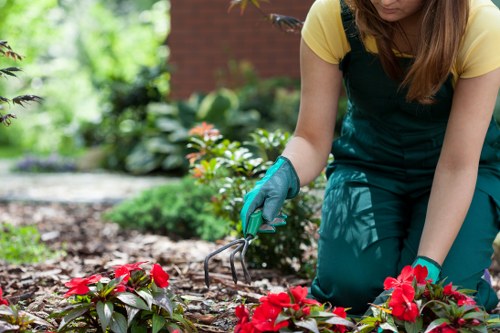
Maintaining a beautiful garden requires dedication, knowledge, and the right set of tools. Garden maintenance in landscape gardeners is not just about keeping plants alive; it's about creating a harmonious environment where every element complements the other.
Regular upkeep ensures that your garden remains lush, vibrant, and free from pests and diseases. Whether you're a seasoned gardener or a beginner, understanding the fundamentals of garden maintenance is essential for achieving long-term success.
In this article, we'll explore various aspects of garden maintenance, offering tips and best practices to help you cultivate a thriving landscape.
Essential Tools for Garden Maintenance
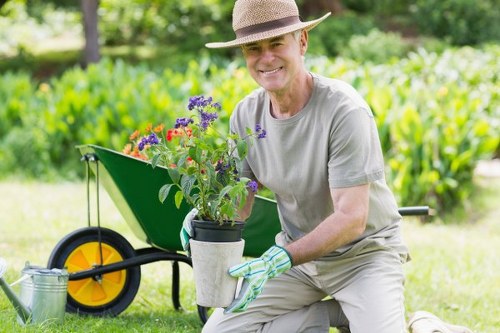
Having the right tools is crucial for efficient garden maintenance. Here's a list of essential tools every landscape gardener should have:
- Pruning Shears: Ideal for trimming and shaping plants.
- Garden Fork: Perfect for aerating soil and removing weeds.
- Hose with Adjustable Nozzle: Ensures proper watering without wasting water.
- Gloves: Protect your hands from thorns, pesticides, and dirt.
- Lawn Mower: Keeps your grass at an optimal height.
Investing in high-quality tools can significantly improve the efficiency and effectiveness of your garden maintenance tasks.
Plant Care and Maintenance
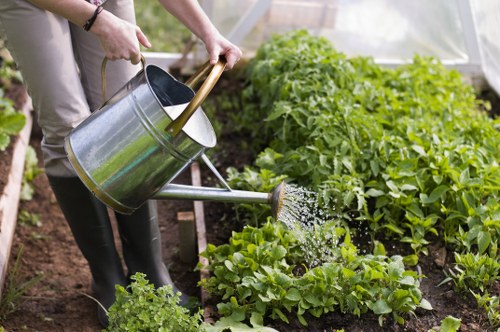
Proper plant care is at the heart of garden maintenance in landscape gardeners. This includes:
- Watering: Ensure plants receive adequate water, especially during dry spells.
- Fertilizing: Provide necessary nutrients to promote healthy growth.
- Pruning: Remove dead or diseased branches to maintain plant health.
- Pest Control: Monitor for pests and apply treatments as needed.
- Weed Management: Regularly remove weeds to prevent competition for resources.
Each type of plant may have specific requirements, so it's important to research and cater to their unique needs.
Soil Health and Preparation
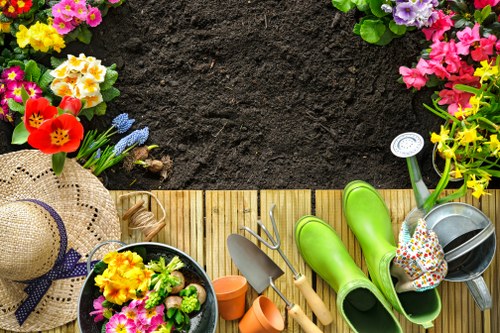
Healthy soil is the foundation of a flourishing garden. To maintain soil health:
- Testing: Regularly test soil pH and nutrient levels.
- Amending: Add organic matter like compost to enhance soil structure.
- Mulching: Apply mulch to retain moisture and suppress weeds.
- Rotation: Rotate crops to prevent soil depletion.
By ensuring your soil remains fertile and well-structured, you provide the best environment for your plants to thrive.
Pest and Disease Management
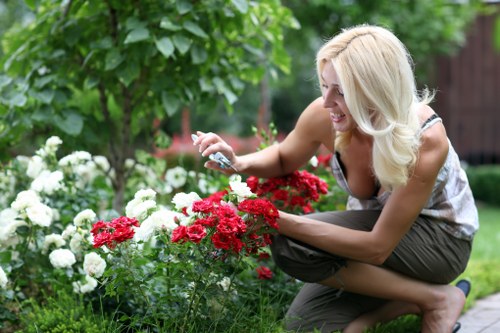
Managing pests and diseases is a critical component of garden maintenance. Effective strategies include:
- Integrated Pest Management (IPM): Combines biological, cultural, and chemical methods.
- Regular Monitoring: Inspect plants regularly for signs of pests or diseases.
- Natural Remedies: Use neem oil, insecticidal soap, or other eco-friendly treatments.
- Sanitation: Remove infected plant material to prevent spread.
- Beneficial Insects: Introduce predators like ladybugs to control pest populations.
Early detection and prompt action are key to preventing minor issues from escalating.
Seasonal Maintenance Tips
Spring
Spring is the time to rejuvenate your garden after winter. Tasks include:
- Pruning shrubs and trees.
- Planting new flowers and vegetables.
- Applying fertilizer to boost growth.
Summer
During summer, focus on:
- Regular watering and mulching.
- Controlling weeds and pests.
- Harvesting ripe produce.
Autumn
Autumn maintenance involves:
- Clearing fallen leaves.
- Planting bulbs for spring blooms.
- Preparing plants for colder weather.
Winter
In winter, tasks are minimal but important:
- Protecting plants from frost.
- Planning for next year's garden.
- Maintaining tools and equipment.
Adapting your maintenance routine to the seasons ensures year-round garden health.
Sustainable Garden Practices
Adopting sustainable practices not only benefits the environment but also enhances your garden's resilience. Consider the following:
- Rainwater Harvesting: Collect and use rainwater for irrigation.
- Composting: Recycle organic waste to enrich soil.
- Native Plants: Choose plants native to your region for better adaptability.
- Organic Gardening: Avoid synthetic chemicals in favor of natural alternatives.
Implementing sustainability in your garden maintenance fosters a healthy ecosystem and reduces your ecological footprint.
Professional Garden Maintenance Services
While DIY maintenance is rewarding, sometimes professional assistance can make a difference. Landscape gardeners offer expertise in:
- Designing and planning garden layouts.
- Executing complex maintenance tasks.
- Providing tailored solutions for specific garden challenges.
- Ensuring consistent and high-quality upkeep.
Consider hiring professionals to maintain the beauty and health of your garden efficiently.
Conclusion
Effective garden maintenance in landscape gardeners involves a combination of proper tool usage, plant care, soil management, pest control, and seasonal adjustments. By following the tips outlined above, you can cultivate a thriving garden that brings joy and beauty throughout the year.
Remember, a well-maintained garden not only enhances the aesthetic appeal of your property but also contributes to a healthier environment.
Contact us today to learn more about our garden maintenance services and let us help you achieve the garden of your dreams.